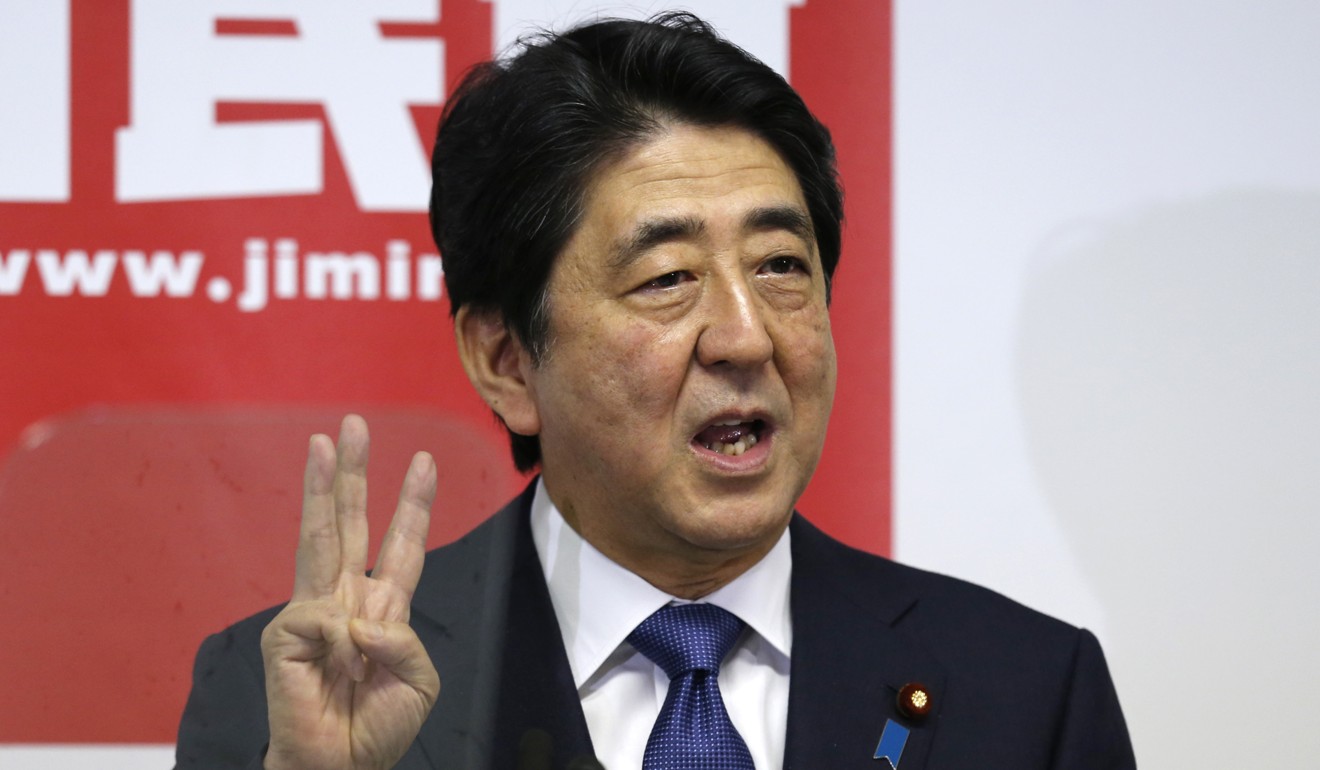
Japanese PM Shinzo Abe announces sales tax rise to finance snowballing welfare bill
Consumption tax will increase to 10 per cent despite fears for growth in the world’s third-biggest economy
Japan on Monday announced a much anticipated sales tax increase in 2019 to address the nation’s huge public debt, despite warnings it could hobble growth in the world’s third-biggest economy.
The point-of-sale tax will rise from eight per cent to 10 per cent from October next year as ageing and heavily indebted Japan battles to finance snowballing social security bills – especially medical fees.
The tax rise was originally planned for October 2015 but was pushed back twice because of fears it could derail the fragile economy.
The last such move – in April 2014 – was blamed for tipping Japan into a brief recession.
This time, Prime Minister Shinzo Abe believes he can avoid a sharp decline in consumer spending by introducing measures to cushion the blow.
Abenomics is dead. Japan’s economy needs a more fundamental solution
The government “will do its best to avoid a negative impact on the economy by taking every possible measure,” Chief Cabinet Secretary Yoshihide Suga told reporters.
However, Suga added that the planned increase could still be scrapped if there were a potentially historic recession like a global slump triggered by the 2008 collapse of Lehman Brothers.
The measures will include plans to leave the sales tax on food unchanged at eight per cent, Suga said.
The government also plans subsidies to offset the impact of the sales tax rise on some consumer durables such as houses and environmentally-friendly cars.
And the proceeds from the tax increase will go in part to fund free nursery places to ease the impact on families and encourage Japanese to have more babies, as the population continues to shrink at a fast pace.

“I don’t think the sales tax this time will create a setback in the economy,” said Hideo Kumano, chief economist at Dai-ichi Life Research Institute, adding that a hoped-for rise in wages would be critical.
The measures to mitigate the impact on consumption and an expected rise in salaries next year should be enough to absorb a shock from falling disposable income, he said.
Kumano said further delaying the tax rise could in fact be more damaging.
This would “prompt worries over the future financing of the social security system that in turn would have negative impact on consumption,” Kumano said.
Abe sets the stage, but can Abenomics really work?
Abe, who has dubbed his economic policy “Abenomics,” has frequently stressed that reforming the country’s social security system is “the biggest challenge” facing his government and has pledged to tackle the issue.
IMF chief Christine Lagarde warned earlier this month that the challenges facing the country will “only grow as Japan’s population continues to age and shrink,” noting that both the size of the economy and the population are on track to shrink by a quarter over the next 40 years.
In addition, a loss of confidence in Tokyo’s ability to pay its debts could send interest rates soaring and increase the risk of a bankruptcy.
Ratings agencies have previously cut Japan’s credit standing over its debt levels.

.png?itok=arIb17P0)